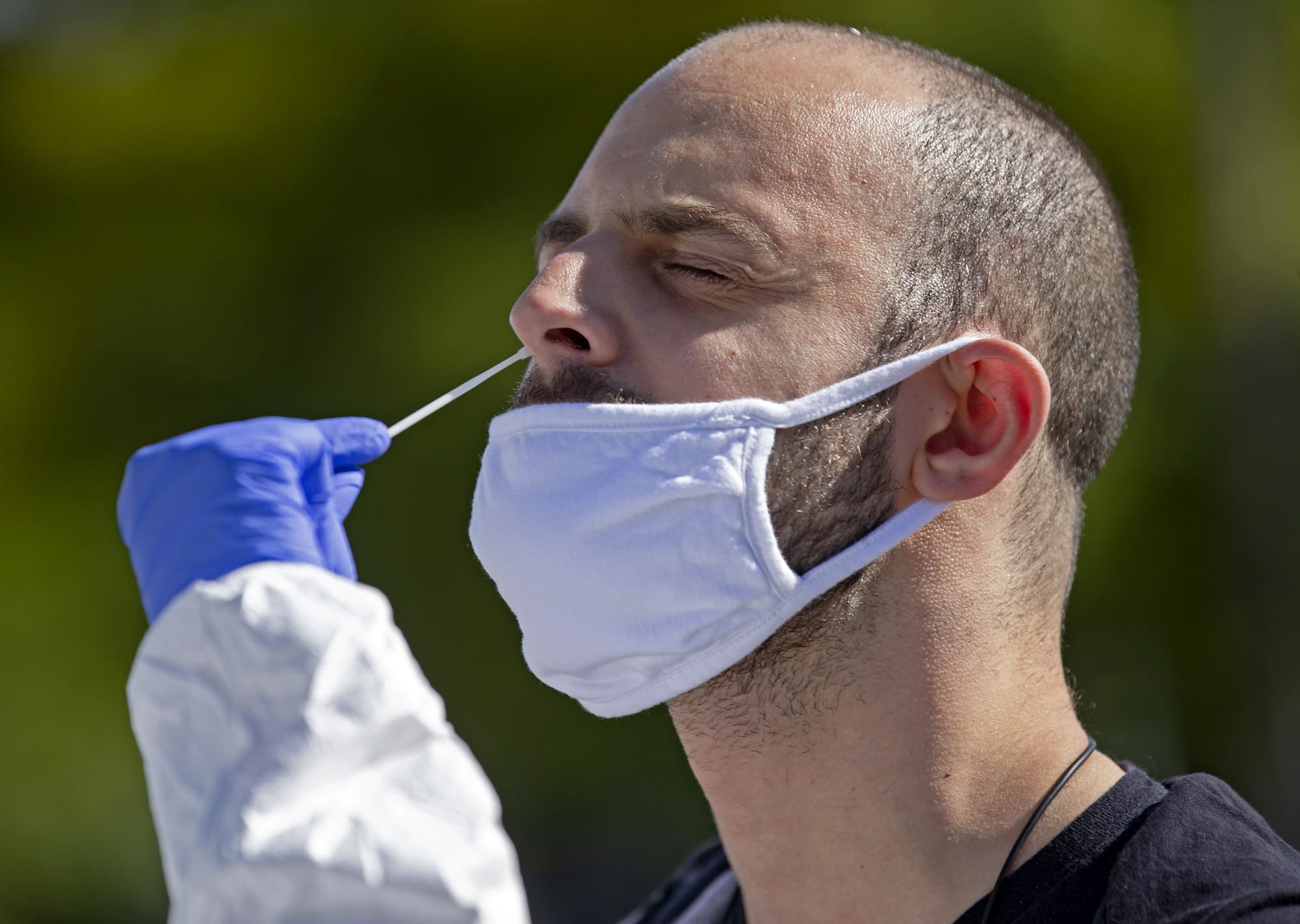Widespread Covid testing helped stop asymptomatic spread among Marine recruits, study says

Widespread Covid-19 testing helped to stop asymptomatic spread among nearly 2,000 Marine recruits, providing more evidence that frequent testing can help contain the virus, according to a new federally backed study.
Dr. Stuart Sealfon, the senior author of the paper and a neurologist at the Icahn School of Medicine at Mt. Sinai in New York City, said the study shows that public health measures need to be supplemented by widespread testing to control the coronavirus.
“You need to put all of these infection control measures in place as best as you can, and you need to supplement them or integrate them with as much testing and as frequent testing as you can manage,” he said in a phone interview. He added that “you can’t rely on testing alone,” either.
Many epidemiologists and public health specialists have repeatedly called on the Trump administration to ramp up the availability of testing across the country. While testing has increased, Adm. Brett Giroir, the assistant secretary for health and the Trump administration’s virus testing czar, has said testing people who don’t have symptoms is not necessary.
The new study, published Wednesday, demonstrates the importance of frequent testing as a supplement to infection prevention measures, Sealfon said.
Funded by the Defense Health Agency, Naval Medical Research Center and the Defense Advanced Research Projects Agency, the study looked at 1,848 Marine recruits at basic training on Parris Island in South Carolina from May 12 to July 15. The average age of participants was 19, the study says.
Before entering basic training, the recruits were first asked to quarantine at home for two weeks and were then placed in a supervised two-week quarantine at a college campus, the study says. Before entering Parris Island, each recruit had to present a negative Covid-19 molecular test. After entering, recruits were also asked to adhere to public health guidelines, including wearing masks and social distancing.
To study asymptomatic spread of the virus among the relatively young population, researchers tested all participants within two days, seven days, and 14 days of arrival on Pettis Island using nasal swab molecular test, the study says.
The study found that 16 of the recruits tested positive for Covid-19 upon enrollment within two days of arrival despite their having quarantined for four weeks beforehand. Another 24 tested positive seven days after their arrival on the base, the study says, and 11 more recruits tested positive on day 14. Just five participants reported any symptoms of Covid-19.
Another 26 recruits, who did not participate in the study, tested positive for the virus on day 14, the study says.
Harm van Bakel, a geneticist at Mt. Sinai’s Icahn School of Medicine, conducted genetic sequencing of the virus to better understand how it was spreading among the population. He found that there were six separate clusters of infections on the base despite all the public health protocols the Marine Corps had implemented.
“If you don’t do frequent and broad testing in this kind of young adult cohort, then it’s very difficult to find all positive cases,” he said. “So relying only on symptom screening, social distancing, mask wearing guidelines, it is still possible to miss cases.”
Sealfon, the senior author, said their findings are in line with what the National Basketball Association experienced earlier this year when they sought to create a so-called bubble that allowed them to finish their season. The NBA conducted daily Covid testing of all players and staff in the bubble and successfully kept the virus at bay.
Sealfon added that colleges and universities would do well to note the findings of their study. While there was strict adherence to infection control protocol on the Marine base, college students are less likely to practice social distancing and mask wearing, he said, making frequent testing all the more important.
“The public health measures are very important, but they’re not enough,” he said. “This is a tough virus. You can’t let your guard down.”




